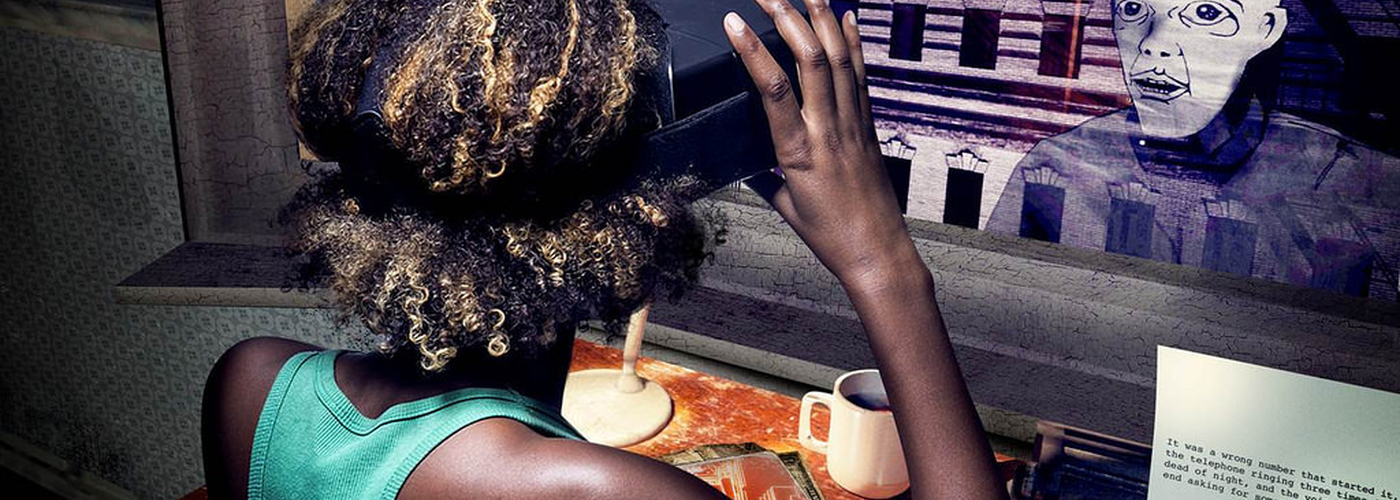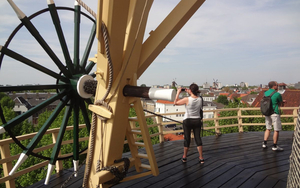Alun Richards is beguiled by a lavish adaptation of Paul Auster’s deconstructed crime novel.
****
On one side of the stage is a window, on the other, a mirror. City of Glass plays out between these two objects, which seem carefully positioned to remind us that what appears transparent may in fact be a reflection. And in case that isn’t meta enough for you, the proscenium is bordered with lightbulbs. It’s like staring into the changing room of a seedy night club.
Based on the first part of Paul Auster’s New York Trilogy (1985–86), the play recounts the story of Daniel Quinn, a former poet who makes a living writing mystery novels under the alias William Wilson. One night he gets an unexpected phone call from someone looking for ‘Paul Auster of the Auster Detective Agency’. Finding himself between projects, he decides to play along.
The ‘case’ that follows concerns a recluse named Peter Stillman, who’s convinced that his theologian father – also called Peter Stillman – is trying to kill him. But that’s just the jumping-off point for a kind of semiotic thriller that takes in the fall of man, Humpty Dumpty and a scheme to save the world by inventing a new language. It’s likely Philip Marlowe would have sat this one out with a bottle of Old Forester and a pack of Camels.
The plot, if that’s the right term for it, turns on the relationship between words and the things they depict, between fantasy and reality. There are hints that Quinn himself is the author, and that writing fiction is really a kind of detective work – lining up the characters, figuring out their motivations. But we’re also reminded that Quinn is a fabrication, a noirish Don Quixote who reads too many crime novels and mistakes himself for a detective. Instead of tilting at windmills, he shadows jailbirds in the rain with a broken umbrella. Paul Auster himself makes a couple of brief appearances, but he isn’t very important.
All of this is interesting in its own right, but what elevates City of Glass over any other competent adaptation is the elaborate staging developed by 59 Productions, the company behind War Horse and the Lewis Carroll musical Wonderland. Most of the décor is projected on to the set, conjuring a hyper-noirish world of mean streets and seedy motels that shifts in the blink of an eye. And while some of the showier techniques – blizzards of swirling words, map routes that spell out letters – slip into gimmickry, the overall effect is atmospheric and unsettling.
In the end, what it all adds up to remains unclear – a mystery in the truest sense of the word. Rather than assembling the pieces of a jigsaw to reveal the whole image, Auster scatters them on the ground and marvels at the patterns they make. As such, City of Glass will frustrate those who crave tidy resolutions, while captivating the more speculatively minded with its inventiveness and flair.
City of Glass is playing at HOME until Saturday 18 March.














